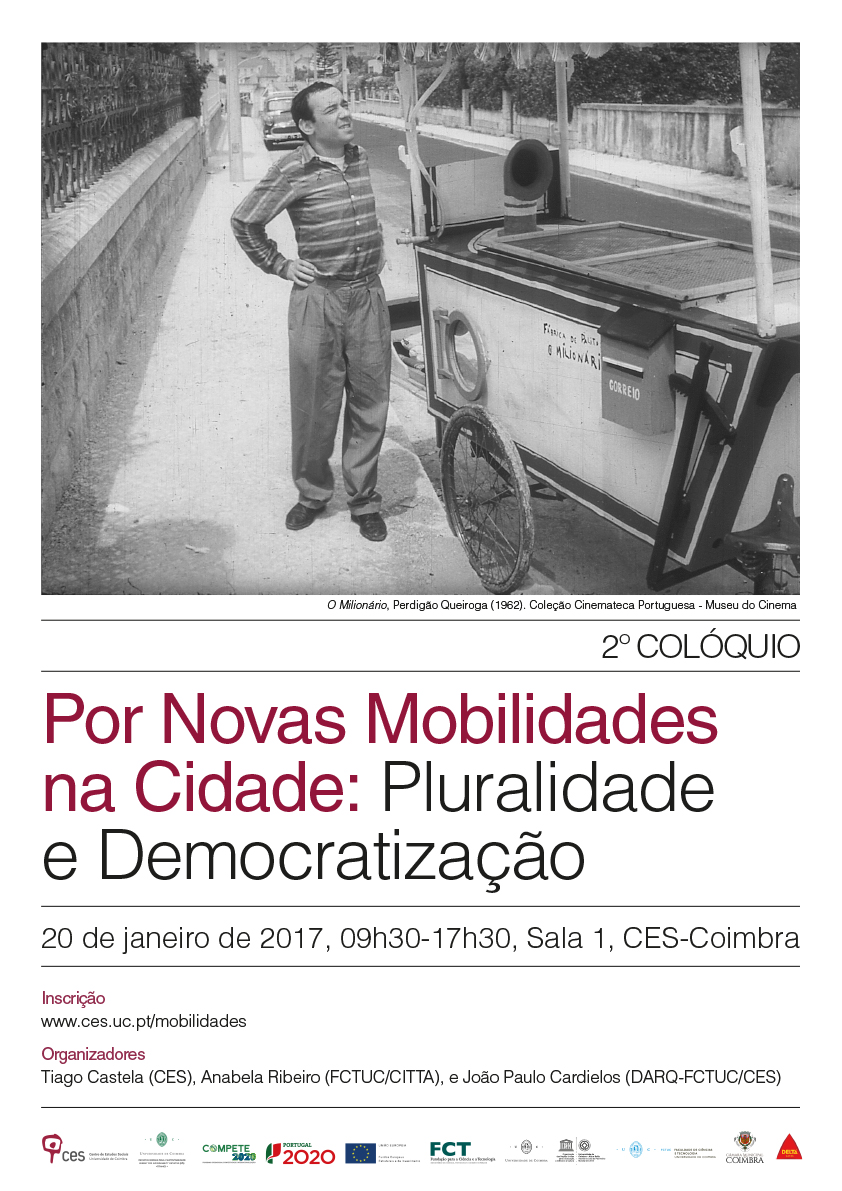Colloquium
2nd Colloquium For New Mobilities in the City
January 20, 2017, 09h30
Room 1, CES-Coimbra
Presentation
This second transdisciplinary colloquium on new urban mobilities will focus on the relationship between historical knowledge, prospective planning, and citizen activism. We will reflect collectively on the latest research in the field of urban mobilities with a focus on research in everyday cycling and electric vehicles, and we will make an assessment of activist practices and municipal planning since the first conference held in 2013.
We will start by revisiting the discussion of theoretical and methodological tools that can support imaginations of urban future that explore the situated potential of concrete cities. We will recall the historical role of urban mobilities in the production of space, both an economic circuit and subjectivities training circuit, collapsing local and global; and update the exploration of ways in which the ideas and movement practices in the city are associated with "performance" of gender, class and "race", invoking postcolonial and feminist perspectives on space. In particular, we shall discuss ongoing research on urban mobility in Portuguese urban areas.
Then we will resume the debate on the possibilities of coordination between social scientists, professionals working for the local state apparatus, and citizen activists, questioning again the dangers of a discourse on urban mobility represented exclusively as a technical issue. Consequently, such reflection will consider the conflicts inherent in a democratic city government, and in particular the collective decisions on forms of movement in urban space. Namely, we will discuss the activist practices and municipal planning work underway in Portugal. We will conclude with a debate on the future of mobilities in the city as a crucial issue in democratisation.
Target
This colloquium is aimed at urban planning and architecture professionals, urban mobility activists, researchers and MA and Ph.D. students, especially in urban planning, architecture, geography, anthropology, sociology, and law
Methodology
The colloquium includes two sessions with three hours duration, and will end with a one-hour Q&A, after a coffee-break. At the end of the colloquium participants will receive a certificate of attendance, the participants list and the-the meeting's proceedings.
Deadline for Registration and Payment
November 11, 2016
Maximum number of participants: 40
Fees
- General Public: 10 Euros
- MA and PhD Students: 5 Euros
Organisers
Tiago Castela (CES), Anabela Ribeiro (CITTA/FCTUC), and João Paulo Cardielos (DARQ/CES)
Activity within the Cities, Cultures, and Architecture Research Group (CCArq) and Energy for Sustainability Initiative (EfS) of the University of Coimbra.


